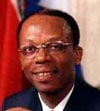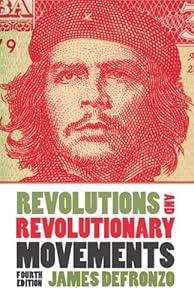A political dissenter is someone who rejects the prevailing political attitudes of the time — fundamentally challenging the orthodox tenants that make up the political system. For example, a deep ecologist fundamentally dissents from the notion that we should aim for growth and sees the debate about how to achieve and distribute economic growth as a distraction from the main issue of building a non-materialistic society. Other dissenters may question the role of military spending or foreign policy or the justification for the current government.
Famous Political Dissenters
 Socrates (469 – 399 BC) Athenian philosopher, famous for the Socratic method of questioning every preconception. Socrates challenged the powerful within his own city-state of Athens. He questioned the view that ‘”might makes right” and he also criticised Athens foreign policy. He was sentenced to death by a court who argued his dissension was ‘corrupting the youth of Athens.’
Socrates (469 – 399 BC) Athenian philosopher, famous for the Socratic method of questioning every preconception. Socrates challenged the powerful within his own city-state of Athens. He questioned the view that ‘”might makes right” and he also criticised Athens foreign policy. He was sentenced to death by a court who argued his dissension was ‘corrupting the youth of Athens.’
Spartacus (c. 109–71 BC). Spartacus was a gladiator slave. He led a major slave uprising against the Roman Empire, in what was known as the Servile Revolt, he died in 71 BC.
 Martin Luther (1483 – 1546) – Luther was a religious dissenter. He criticised the power and abuses of the Roman Catholic Church and called for widespread reform. His religious dissension also challenged the political rule of Catholic states. He was a key figure in the Reformation and transformation of Europe.
Martin Luther (1483 – 1546) – Luther was a religious dissenter. He criticised the power and abuses of the Roman Catholic Church and called for widespread reform. His religious dissension also challenged the political rule of Catholic states. He was a key figure in the Reformation and transformation of Europe.
 Tom Paine (1737- 1809) English-American author, philosopher and social activist. Paine wrote ‘Common Sense‘ (1776) and the Rights of Man (1791) which argued the British Crown had no right to rule America without representation. He supported aspects of the French Revolution and argued against the influence of state Christianity. His criticism of Christian religion made him unpopular even in America, where he helped sow the seeds of Revolution.
Tom Paine (1737- 1809) English-American author, philosopher and social activist. Paine wrote ‘Common Sense‘ (1776) and the Rights of Man (1791) which argued the British Crown had no right to rule America without representation. He supported aspects of the French Revolution and argued against the influence of state Christianity. His criticism of Christian religion made him unpopular even in America, where he helped sow the seeds of Revolution.
 Thomas Jefferson (1743- 1826) American statesman and philosopher. Jefferson wrote the Declaration of Independence, which gave many reasons why the US should refuse to belong to Great Britain but assert its rights to freedom and independence. By signing the Declaration of Independence, the Founding Fathers knew that in British eyes they were committing treason.
Thomas Jefferson (1743- 1826) American statesman and philosopher. Jefferson wrote the Declaration of Independence, which gave many reasons why the US should refuse to belong to Great Britain but assert its rights to freedom and independence. By signing the Declaration of Independence, the Founding Fathers knew that in British eyes they were committing treason.
 Jeremy Bentham (1748–1832) British Utilitarian philosopher. In many fields he was ahead of his time, criticising orthodox views of society. He supported the abolition of slavery, universal education. He wished to end the criminalization of homosexuality, abolish the death penalty and corporal punishment. He was also a forerunner of animal rights.
Jeremy Bentham (1748–1832) British Utilitarian philosopher. In many fields he was ahead of his time, criticising orthodox views of society. He supported the abolition of slavery, universal education. He wished to end the criminalization of homosexuality, abolish the death penalty and corporal punishment. He was also a forerunner of animal rights.
 John Brown (1800–1859) A fervent white abolitionist who believed in armed insurrection against the institution of slavery. In 1859, he led an armed uprising in Harpers Ferry, Virginia aiming to free slaves and end the practice. He was executed for his attempted uprising. It was a factor in precipitating the American civil war.
John Brown (1800–1859) A fervent white abolitionist who believed in armed insurrection against the institution of slavery. In 1859, he led an armed uprising in Harpers Ferry, Virginia aiming to free slaves and end the practice. He was executed for his attempted uprising. It was a factor in precipitating the American civil war.



 Emmeline Pankhurst (1858 – 1928) A leading British suffragette, Pankhurst campaigned for women to be given the right to vote. When her efforts were ignored, she began a campaign of civil disobedience to draw attention to her claims. She was frequently being sent to prison in the 1910s, due to her violent protests.
Emmeline Pankhurst (1858 – 1928) A leading British suffragette, Pankhurst campaigned for women to be given the right to vote. When her efforts were ignored, she began a campaign of civil disobedience to draw attention to her claims. She was frequently being sent to prison in the 1910s, due to her violent protests.
 Mahatma Gandhi (1869 – 1948) The foremost political leader of the Indian independence movement. Gandhi refused to accept discrimination against Indians in South Africa. In India, he refused to accept Britain had a right to rule. He opposed British rules and laws through non-violent methods, such as the Salt Tax Protest.
Mahatma Gandhi (1869 – 1948) The foremost political leader of the Indian independence movement. Gandhi refused to accept discrimination against Indians in South Africa. In India, he refused to accept Britain had a right to rule. He opposed British rules and laws through non-violent methods, such as the Salt Tax Protest.

 Nelson Mandela (1918–2013) Anti-apartheid leader committed to overthrowing the system of apartheid. Mandela spent over twenty years in jail for his opposition to the government. He was elected the first President of Democratic South Africa in 1994. Under Mandela’s leadership, he helped South Africa to emerge peacefully from its apartheid era.
Nelson Mandela (1918–2013) Anti-apartheid leader committed to overthrowing the system of apartheid. Mandela spent over twenty years in jail for his opposition to the government. He was elected the first President of Democratic South Africa in 1994. Under Mandela’s leadership, he helped South Africa to emerge peacefully from its apartheid era.


 Martin Luther King (1929 – 1968) Non-violent civil rights leader. King led marches and protests and civil disobedience in his movement to end segregation and gain political rights for African-Americans. The main speaker at the 1963 March on Washington, where he gave the famous ‘I have a dream’ speech.“
Martin Luther King (1929 – 1968) Non-violent civil rights leader. King led marches and protests and civil disobedience in his movement to end segregation and gain political rights for African-Americans. The main speaker at the 1963 March on Washington, where he gave the famous ‘I have a dream’ speech.“


 Muhammad Ali (1942 – 2016 ) Muhammad Ali refused to fight in Vietnam, arguing it was against his religion and he had no quarrel with the Vietnamese. His stance caused him to lose his world title and prevented from being a professional boxer for a few years.
Muhammad Ali (1942 – 2016 ) Muhammad Ali refused to fight in Vietnam, arguing it was against his religion and he had no quarrel with the Vietnamese. His stance caused him to lose his world title and prevented from being a professional boxer for a few years.
 Lech Walesa (1943– ) Leader of the first non-Communist trade union and later the Polish Solidarity Movement, which sought to end Communist rule. Walesa became the first non-Communist President in 1991. Awarded the Nobel Peace Prize in 1983.
Lech Walesa (1943– ) Leader of the first non-Communist trade union and later the Polish Solidarity Movement, which sought to end Communist rule. Walesa became the first non-Communist President in 1991. Awarded the Nobel Peace Prize in 1983.





Citation: Pettinger, Tejvan. “Famous Political Dissenters”, Oxford, UK. biographyonline.net Published 16 August 2019. Last updated 16 August 2019.
DK – The Politics Book
 The Politics Book at Amazon –
The Politics Book at Amazon –
Revolutions and Revolutionary Movements
Revolutions and Revolutionary Movements at Amazon
People who fought for human/civil rights


 Famous Revolutionaries – People who inspired or began revolutions. Including Spartacus, Joan of Arc, George Washington, Karl Marx.
Famous Revolutionaries – People who inspired or began revolutions. Including Spartacus, Joan of Arc, George Washington, Karl Marx.


